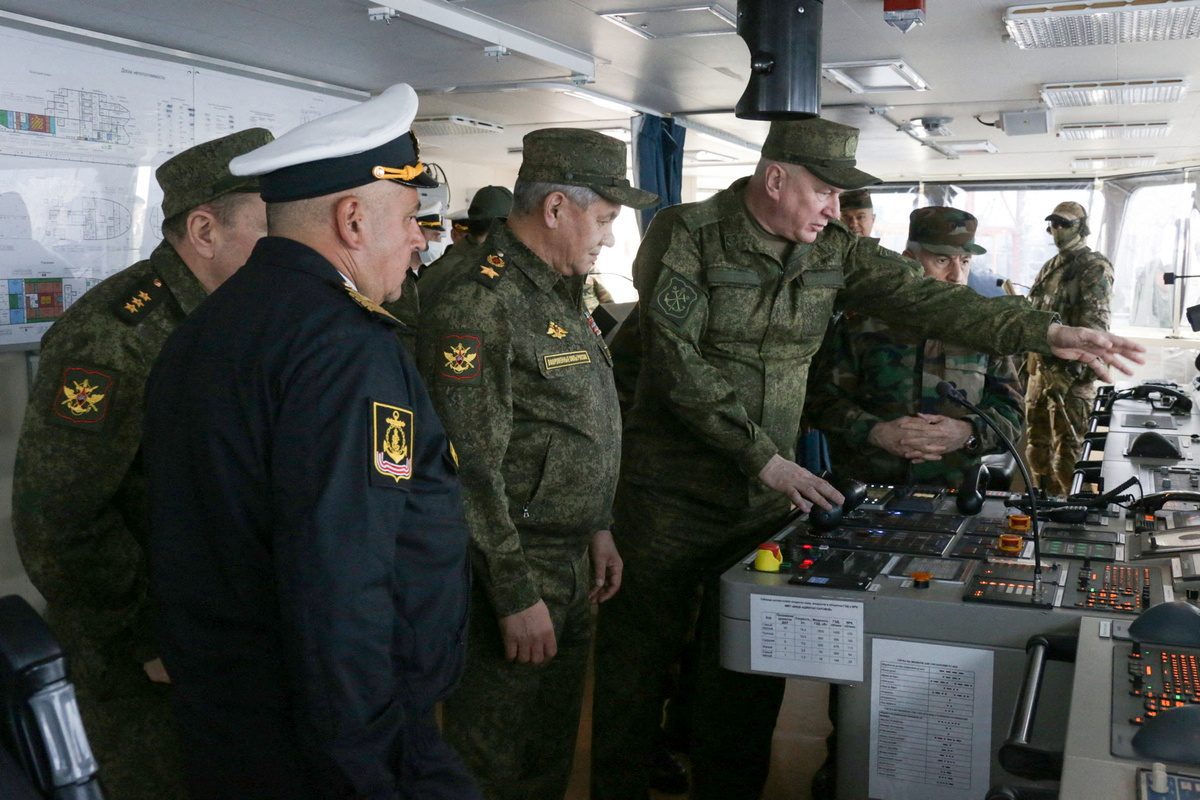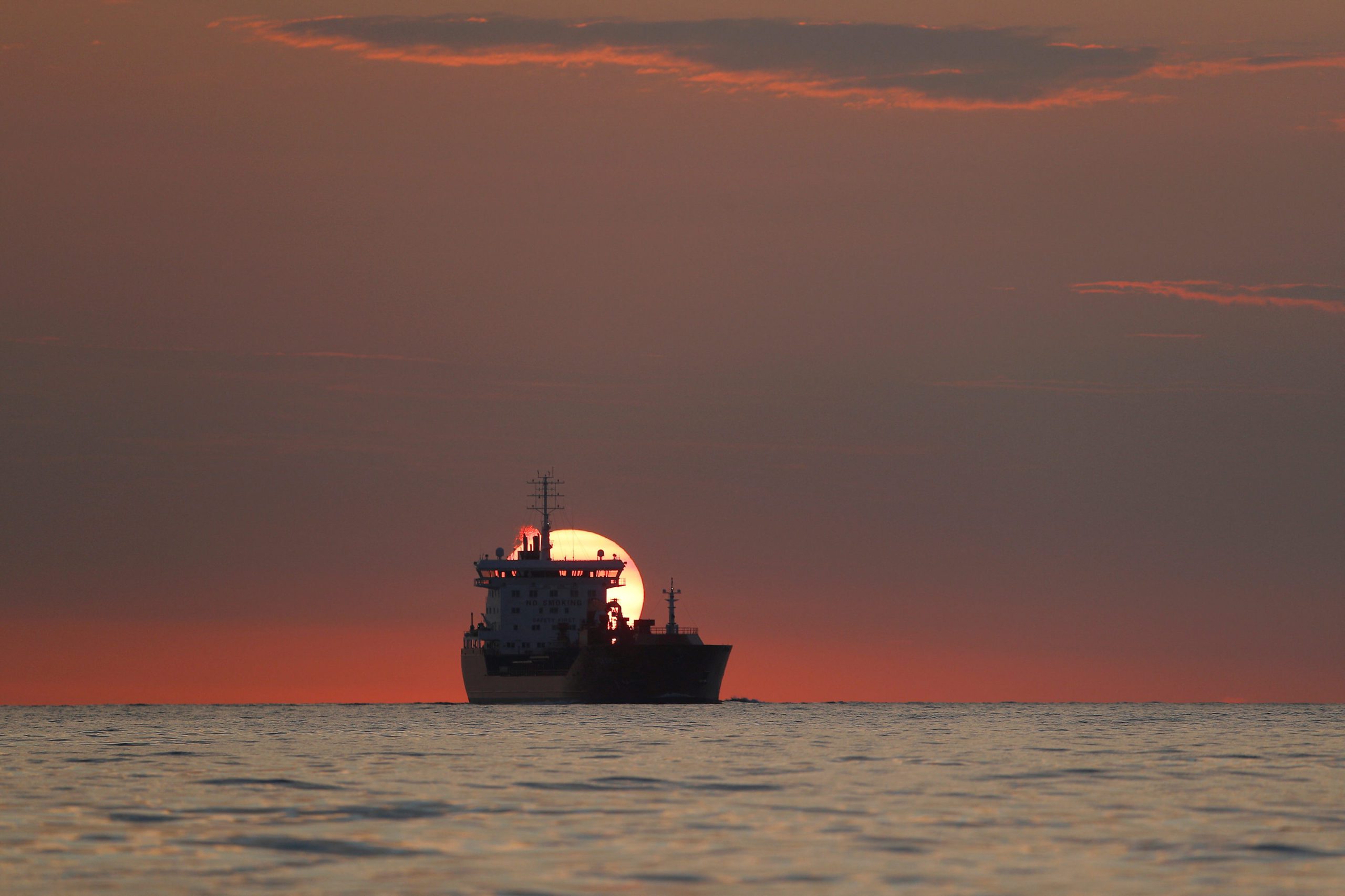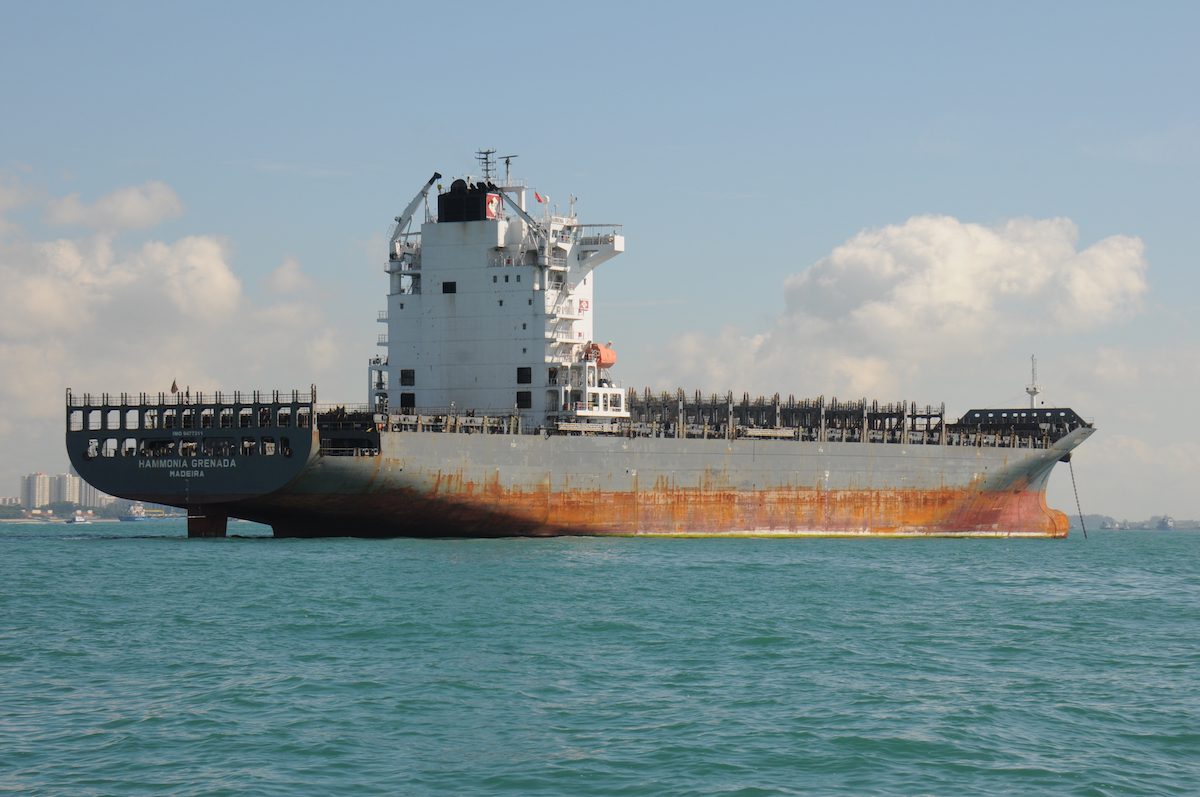by John Konrad (gCaptain) This week the Financial Times (FT) reported that, according to estimates, 55 to 60 percent of Ukraine’s 80,000 seafarers are currently on ships, about 20 percent want to return to Ukraine to fight against Russia, and a significant number fear they will be arrested – or worse – if their ships enter Russian ports.
The Financial Times article appeared just days before Maersk announced it would return to Russia to pick up empty containers despite a NATO warning that Russia will directly attack commercial shipping is “Very High“. Lloyds List reported on Monday that majors including Shell are still sending Russian cargo to Rotterdam while Maersk Tankers is still fulfilling existing agreements in the Black Sea port of Novorossiysk made before the ban was announced.
“Would the CEO of Maersk visit Russia right now? Would any NATO Admiral? Would any European Union politician?”, asked one seafarer who is fearful of returning to Russia. “Then why should we?”
Maersk Runs Back To Russia For Empty Containers
“We do have a number of existing contracts for shipments routed through Russian ports that we entered before February 24. This includes a contract involving Maersk Belfast,” Maersk told Lloyds List. “We are in close contact with our partners and customers and are taking steps to wind them down as soon as possible.”
Frontline (NYSE: FRO) did make one last stop to Novorossiysk but canceled all future contracts and promised not to return to the Black Sea.
Can Russia Be Trusted To Keep Seafarers Safe In Port?
Almost all seafarers interviewed by gCaptain this month, of many nationalities, said they have lost confidence in Russia’s promises not to harm ships. All of them feel nervous or very unsafe when sailing near Russian waters. The Ukrainian sailors we interviewed were especially nervous about sailing near Russia.
“I don’t trust Putin. I don’t trust Russian port state inspectors. I don’t trust the Russian port police. The Russian military is on standby at all Russian ports, so I don’t want to be anywhere near them,” said one ship captain who, fearing reprisals from Russia, asked not to be named. “I’m not Ukrainian but I still feel helpless. We can only hold our breath and give Russian Navy ships a very large CPA.”
Maersk and others have not stated whether they will reassign Ukraine seafarers to alternate ships before sending ships into Russian ports.
“If most Ukrainian seafarers leave there’ll be no nationality able to take their positions,” said Oleg Grygoriuk, chair of the Marine Transport Workers Trade Union of Ukraine in an interview with FT. “This will be catastrophic for world shipping.”
Grygoriuk’s Union has urged its members to stay aboard for their own safety and to keep global logistics running.
The Next Big Supply Chain Problem
Captain Oleksiy Luchyno, the Ukrainian captain who captured the world’s attention with his passionate plea for world support, suggested the number may be higher. He plans to extend his contract but “dares not ask his six Ukrainian colleagues about their plans” to return to Ukraine and fight. “I try to avoid this question,” he said.
Ukrainian sailors who return home may have no choice but to fight. As the Russian assault has intensified, especially around the port cities where many of Ukraine’s mariners live, the Ukrainian government enacted martial law, requiring men to stay in the country and either join the fight or face the prospect of getting drafted.
“This is the next problem the world is facing in the transport sea chain,” said Henrik Jensen, managing director at Danica Crewing Specialists, a Hamburg-based company with 1,200 Ukrainian workers.
Hong Kong-based Anglo-Eastern Univan Group said it has suspended crew changes for some of the 1,000 Ukrainians it employs partly because of this martial law requirement.
“It is very difficult for Ukraine sailors to find a way home, even if they want to,” one Ukraine sailor told gCaptain. “Many companies are refusing to send them home or refusing to help them arrange travel. We feel locked on the ship and live in fear we will be dispatched to deliver cargo to Russian-controlled ports where we could be arrested.”
In response to the fear of arrest Oleksandr Kubrakov, Minister of infrastructure of Ukraine asked the European Union to ban all foreign-flagged ships from entering Russian Ports. “
“We consider it essential and necessary to identify all entities operating shipping and export terminals in Russia generally and in Russian Ports specifically in order that an effective ban on their operations can be imposed,” said Kubrakov. “We respectfully request, in particular, that all Russian ports and their shareholders be placed on the appropriate sanctions lists.”
Shipping Sanctions Are Confusing And Complicated
In addition to fears of arrest and difficulties faced returning home, Ukrainian sailors also worry about losing their jobs because of sanctions. Many Russian-owned ships are registered, insured, crewed, or classified by American and European companies still trying to navigate sanctions. American companies, including LISCR and International Registries, manage the foreign flag ship registries that register some Russian-owned ships. Many Russian-owned ships are inspected by American and European classification societies.
Yale’s Jeffrey Sonnenfeld has compiled a list of companies that have pulled out of Russia but the list does not address what’s possibly the most important consideration for world trade: if the poorly understood tangle of companies that register insure, manage, and class these ships will fire Russian clients.
Several registries and classification societies that are closing offices in Russia did announce they will take the next logical step and start to declassify Russian owned ships but the complicated ownership and structures in shipping mean that Ukrainian seafarers aren’t even sure if the ships they work on are partially Russian-owned or carry Russian cargo. This all leaves them highly uncertain about their future.
“I could be helping Russia move material to make bombs,” said one Ukrainian ship engineer in an online chat. “How would I know?”
Extend Contracts OR Return To Fight?
“1 in 5? That number is too low. Lots more than 1 in 5 want to return to fight and none of my guys want to move cargo or help Russians profit in any way,” the head of one Ukraine crewing agency told gCaptain. “I want to help them walk off any ship that’s helping Russia but it’s difficult to know. We are in constant fear a Russian inspector will arrive and arrest them in a foreign port.”
When asked if her mariners want to fight in the war she said, “Yes but we don’t know how to get them all off and paid so I’m suggesting they keep working.” The same crewing agent, however, told gCaptain that she was dropping her infant child off with family in Italy then would be returning to help protect Odessa. “I can’t tell them to return and fight but that’s what I am doing for myself.”
Will Ukrainian sailors on ships carrying Russian cargo strike? She believes that most would, but first, they need more help and clarity about cargo ownership from the shipping community and how they will feed their families if they refuse to move Russian cargo.
Another international crewing executive told gCaptain that most Ukrainian sailors he works with have not striked because they were focused on helping their family and friends escape. Now that many families are in Western Europe they are looking for ways they can help Ukraine from the sea, and that may include walking off ships that have connections with Russian interests.
Extraordinary Measures
The UN’s International Maritime Organization held an IMO Extraordinary Council Session recently where the Secretary-General indicated his commitment to take immediate action to realize a blue safe maritime corridor so seafarers could get out of Ukraine but the public information released made no mention of helping Ukrainian merchant mariners working aboard Russian owned ships or Ukrainian mariners wanting to return home to fight.
Some seafarers like Prokopenko, a Ukrainian chief mate working on a tugboat in the Pacific, say they don’t want to wait any longer, they want to return to Ukraine right now. “If we don’t do this, then there will be no home and there’s no point working at sea,” he said in an interview with FT.

 Join The Club
Join The Club











